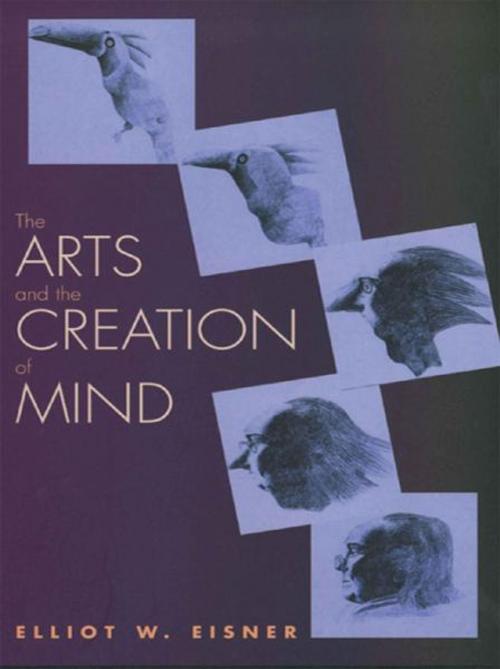The Arts and the Creation of Mind
Nonfiction, Reference & Language, Education & Teaching, Teaching, Teaching Methods| Author: | Elliot W. Eisner | ISBN: | 9780300133578 |
| Publisher: | Yale University Press | Publication: | October 1, 2008 |
| Imprint: | Yale University Press | Language: | English |
| Author: | Elliot W. Eisner |
| ISBN: | 9780300133578 |
| Publisher: | Yale University Press |
| Publication: | October 1, 2008 |
| Imprint: | Yale University Press |
| Language: | English |
Although the arts are often thought to be closer to the rim of education than to its core, they are, surprisingly, critically important means for developing complex and subtle aspects of the mind, argues Elliot Eisner in this engrossing book. In it he describes how various forms of thinking are evoked, developed, and refined through the arts. These forms of thinking, Eisner argues, are more helpful in dealing with the ambiguities and uncertainties of daily life than are the formally structured curricula that are employed today in schools.
Offering a rich array of examples, Eisner describes different approaches to the teaching of the arts and the virtues each possesses when well taught. He discusses especially nettlesome issues pertaining to the evaluation of performance in the arts. Perhaps most important, Eisner provides a fresh and admittedly iconoclastic perspective on what the arts can contribute to education, namely a new vision of both its aims and its means. This new perspective, Eisner argues, is especially important today, a time at which mechanistic forms of technical rationality often dominate our thinking about the conduct and assessment of education.
Offering a rich array of examples, Eisner describes different approaches to the teaching of the arts and the virtues each possesses when well taught. He discusses especially nettlesome issues pertaining to the evaluation of performance in the arts. Perhaps most important, Eisner provides a fresh and admittedly iconoclastic perspective on what the arts can contribute to education, namely a new vision of both its aims and its means. This new perspective, Eisner argues, is especially important today, a time at which mechanistic forms of technical rationality often dominate our thinking about the conduct and assessment of education.
Although the arts are often thought to be closer to the rim of education than to its core, they are, surprisingly, critically important means for developing complex and subtle aspects of the mind, argues Elliot Eisner in this engrossing book. In it he describes how various forms of thinking are evoked, developed, and refined through the arts. These forms of thinking, Eisner argues, are more helpful in dealing with the ambiguities and uncertainties of daily life than are the formally structured curricula that are employed today in schools.
Offering a rich array of examples, Eisner describes different approaches to the teaching of the arts and the virtues each possesses when well taught. He discusses especially nettlesome issues pertaining to the evaluation of performance in the arts. Perhaps most important, Eisner provides a fresh and admittedly iconoclastic perspective on what the arts can contribute to education, namely a new vision of both its aims and its means. This new perspective, Eisner argues, is especially important today, a time at which mechanistic forms of technical rationality often dominate our thinking about the conduct and assessment of education.
Offering a rich array of examples, Eisner describes different approaches to the teaching of the arts and the virtues each possesses when well taught. He discusses especially nettlesome issues pertaining to the evaluation of performance in the arts. Perhaps most important, Eisner provides a fresh and admittedly iconoclastic perspective on what the arts can contribute to education, namely a new vision of both its aims and its means. This new perspective, Eisner argues, is especially important today, a time at which mechanistic forms of technical rationality often dominate our thinking about the conduct and assessment of education.















